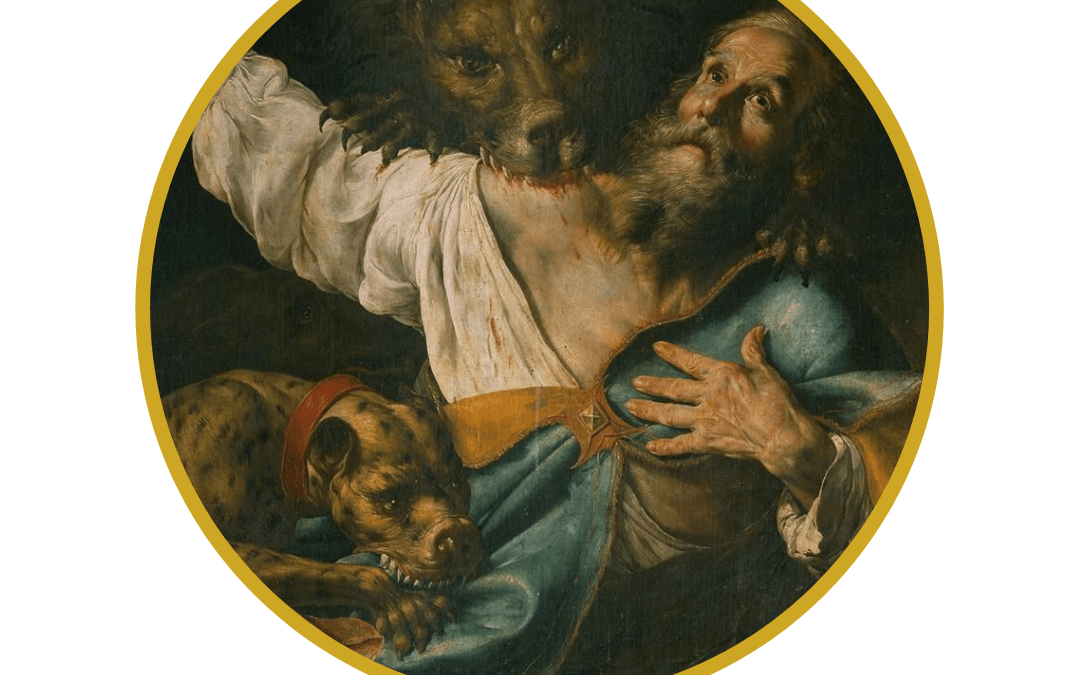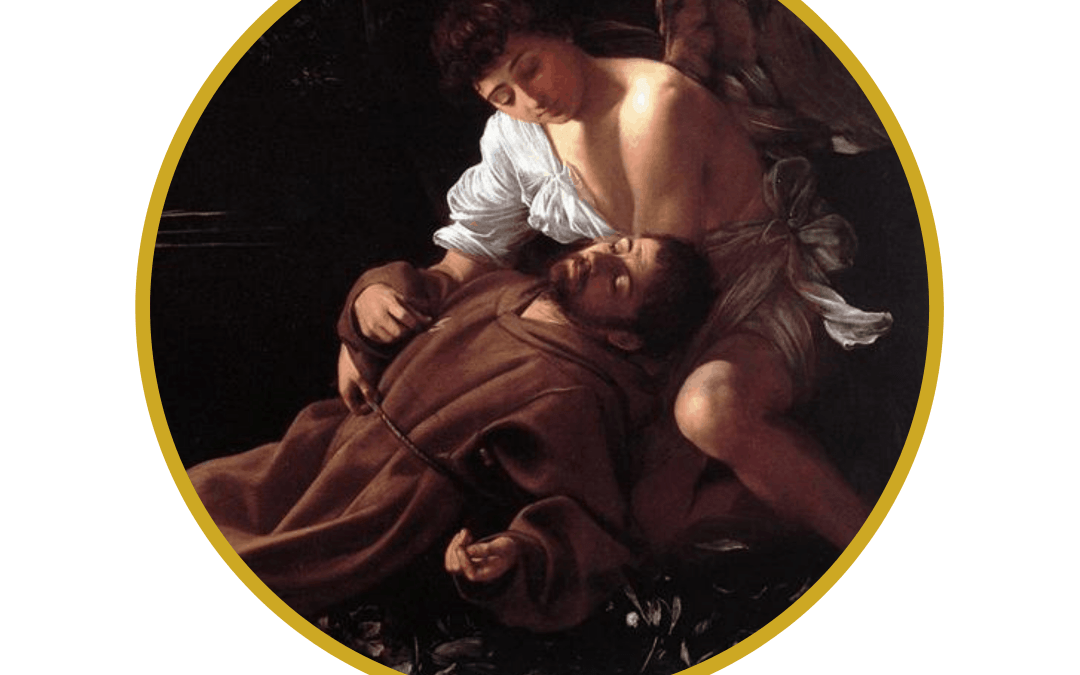
by popadmin | Oct 5, 2020 | CIC Saint Writeups
Saint Ignatius is an apostolic father and one of the great bishops of the early Church. He was born in Syria, converted to Christianity, and became a successor of St. Peter as Bishop of Antioch. He is said to have been personally instructed by the Apostle John. During the persecution of the Emperor Trajan, Ignatius would not deny Christ. He was condemned to death by wild beasts and sent in chains to Rome. During his final journey from Antioch to Rome, St. Ignatius wrote seven epistles (letters) which we still have today. Ignatius wrote to the Christian communities of Ephesus, Magnesia, Tralles, Rome, Philadelphia, and Smyrna; along with a farewell letter to Bishop Polycarp (also a martyr). The Letters of Ignatius are greatly honored by the Church; they stress the importance of Church unity, dangers of heresy, and the importance of the Eucharist as the “medicine of immortality.” His writings contain the first surviving written description of the Church as “Catholic” (indicating the universality of the Church). St. Ignatius also wrote of his burning desire for martyrdom. Pope Benedict XVI said that “no Church Father has expressed the longing for union with Christ and for life in him with the intensity of Ignatius.” Ignatius’ last words before the lions tore him to pieces: “Allow me to become food for the wild beasts, through whose means it will be granted me to reach God. I am the wheat of God, let me be ground by the teeth of the wild beasts, that I may be found the pure bread of Christ.”
Ideas for celebrating this feast day at home:
- Use lions as a theme for food/snacks today. Here is a neat idea for a lion vegetable tray. Or, bake a lion cake – the internet has lots of ideas for this!
- Do an autumn leaf lion craft with children.
- Make homemade wheat bread, remembering the last words of St. Ignatius.
- Find the epistles of St. Ignatius of Antioch here. Read and meditate upon his words.
- St. Ignatius had a gift for written letters/epistles: in his honor, write a letter to someone who is sick, lonely, or in need of a handwritten note to brighten their day.

by popadmin | Oct 4, 2020 | CIC Saint Writeups, Uncategorized
Francis was born in 1182 into a wealthy Catholic family of seven children in Assisi, Italy. He was named John by his mother at birth, after St. John the Baptist. His father renamed him Francis because he made his livelihood in France. Francis lived a life of comfort, leisure, and partying until he left to fight as a solider in two wars. He was taken prisoner for a year. Afterwards, he felt called to spend more time in prayer and service to the poor. While praying, Francis heard God tell him to “repair my house, which is falling into ruins.” Francis went to work repairing ruined churches. His father was angry with him for spending family money. Francis then left home, renounced his wealth, and took a vow of poverty. Francis never become a priest but his love of poverty and his joyful preaching converted people everywhere he went. He had a group of followers; their one basic rule was “To follow the teachings of our Lord Jesus Christ and to walk in his footsteps.” They traveled to Rome to get papal approval for their religious order. At first reluctant about this group of poor men, Pope Innocent III experienced a supernatural dream and then approved the founding of the Franciscan order. The Order grew quickly. A woman named Clare of Assisi wanted to take similar vows, so Francis helped her start the Order of the Poor Ladies (Order of Saint Clare). He also started another order (later called the Third Order of Saint Francis) for lay men and women. St. Francis received the stigmata during a 40-day fast preceding Michaelmas. Francis was also known for his love of nature and animals. There are many stories about Saint Francis preaching to animals and taming wild ones. One story tells of a vicious wolf in the town of Gubbio that was killing people and sheep. Francis confronted the wolf, made the sign of the cross and commanded the wolf not to hurt anyone else. The wolf became tame and the town was saved. In 1220, he set up the first known Nativity scene to celebrate Christmas. Francis became ill and spent the last few years of his life mostly blind. He died in 1226 while singing Psalm 141. He was declared a saint only two years after his death.
Ideas for celebrating this feast day at home:
- Bring your animals to church on Sunday, 4 October at 2pm for the Blessing of the Animals! Fr. Tomlinson will bless all your creatures in the grassy area by the handicap parking.
- Click here for Franciscan prayers you can say with your family on this feast day.
- In honor of his love of poverty, make it a task this week to declutter closets and donate extra items to the poor! Include your children in this endeavor to give out of your excess to those in need. Or, send the St. Vincent de Paul Society a donation.
- Francis fasted most of his religious life, so it’s not completely natural to prepare a great feast in his honor. However, on his deathbed, he asked for a sweet treat concocted of almonds and sugar. Here is a recipe that might be similar to what he requested. Because he was from Assisi, an Italian-themed dinner would also be fitting.
- Get out into nature today and enjoy an animal-themed snack (animal crackers, ants on a log).
- This website has other meal ideas in honor of St. Francis.


Recent Comments